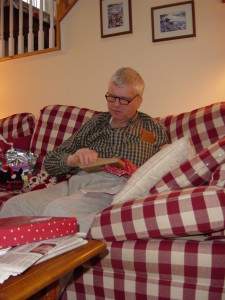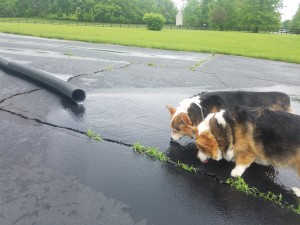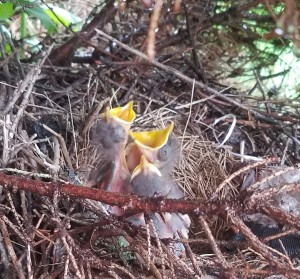I lost my uncle unexpectedly recently, and that got me thinking about life. What does a life boil down to? What are the ways we all affect each other?
 More people than expected showed for the viewing, and it seems no matter how isolated we may seem, we impact our fellow humans. It is the nature of mankind: we are ripples in a pond. Even though we do not last forever, our actions move those around us, which causes more ripples, and so on. Human nature is such that the pond is never fully still.
More people than expected showed for the viewing, and it seems no matter how isolated we may seem, we impact our fellow humans. It is the nature of mankind: we are ripples in a pond. Even though we do not last forever, our actions move those around us, which causes more ripples, and so on. Human nature is such that the pond is never fully still.
It is in this way that we live beyond our years. We live in the stories we tell, in the memories we create, in the anecdotes that survive us.
I wanted to share what I read about my uncle because the lesson seems especially important in a world that seems to increase its pace daily:
One of the most poignant memories I have of my uncle is a Christmas when I was younger. He and my grandmother were unloading gifts under our tree, and I stood perplexed. As a child, still self centered, I noticed that a gift labeled to my sister was huge, whereas one for me was tiny.My uncle was the only one who noticed what must have been a perplexed look on my face. He stopped unloading the gifts and turned to me. “You know,” he said, “whatever is inside this little box might be the most valuable thing under the tree. There are diamonds and jewels worth more than cars.“
I don’t remember what was in any of those boxes that Christmas, but I do remember my uncle’s words because they stuck with me through the decades. His words opened up my way of thinking. As a child, I imagined all sorts of little things that might be hidden in that box. A skeleton key that opened any door in the world? A gem that granted wishes? An ancient piece of jewelry? Previously, like most little kids, I thought bigger is better, but his words made me think beyond the obvious.
Thinking back on it, I realize the exchange represents the way he lived. I don’t think anyone here, or anyone who knew him, would describe him as “typical.” He was always one of a kind. Whether he was known to be the poster child for political incorrectness or known as “uncle Looney,” as I and my sister and dad and daughter lovingly called him, Warren stood out wherever he went.
He never gave in to the rat race of life. He thought differently and he lived the way he thought, marching to the beat of his own drum. In our rush to go from work to home and back again, things often blur together in a frenzy of time. We miss so many of the details and forget what is not immediately relevant. But not so with him.
He remembered things and enjoyed the tangible for the memories they held. What we saw as an old car he refused to give away, he saw a collection of memories, a tangible link to the past.
When we watch films, we do so mostly in passing, but he took the time to enjoy them, often multiple times, so that their meaning grew beyond the superficial. When I told him I was expecting a daughter, he responded with an elaborate reference to Marty McFly, a character in my favorite movie of all time. He took a passing reference to a film and loaded it with meaning about destiny and life choices and fulfilling our futures.
And that is what I will always remember him for. As a libertarian, I value above all else the idea of thinking critically and living by one’s own standards, not living a certain way simply because someone else told us to. And my uncle certainly did this. He lived the life he chose for himself to the end.
Whether it’s his quirky references to films, the many gag toys he showed us as kids, the pranks that he played on us, his outside-the-box ideas, or a simple but eye-opening statement about the value of an unknown gift, I will always remember him as one of the most unique people I have ever met. A tease and friend to my dad, a comfort to my grandmother, the quintessential eccentric uncle to me, and the doting great uncle to my daughter.
Ralph Waldo Emerson said “insist on yourself; never imitate.” My uncle lived this philosophy, and as we rush back to our lives, I’d like us to keep his way of life in mind, taking a moment to linger in a thought or memory, a moment to enjoy the comfort of our physical surroundings, a moment to linger in the now. The future we worry about is always there lurking but never is promised. But we have moments–here in the now–that become memories. My uncle embraced those, and as we move on with our lives, I know the many moments we have shared with him will become memories we will cherish, keeping him alive in our hearts.
I am working on the second draft of a novel that is largely inspired by my uncle and his life. Stay tuned for details.
Also: my uncle had several copies of my books, and I have been trying to decide what to do with them. If you feel so inclined, leave a comment, and I will likely choose random responders to send copies to. There are several Corgi Capers, some Chicken Soup for the Soul titles, and other Val Muller novels in the stack.




